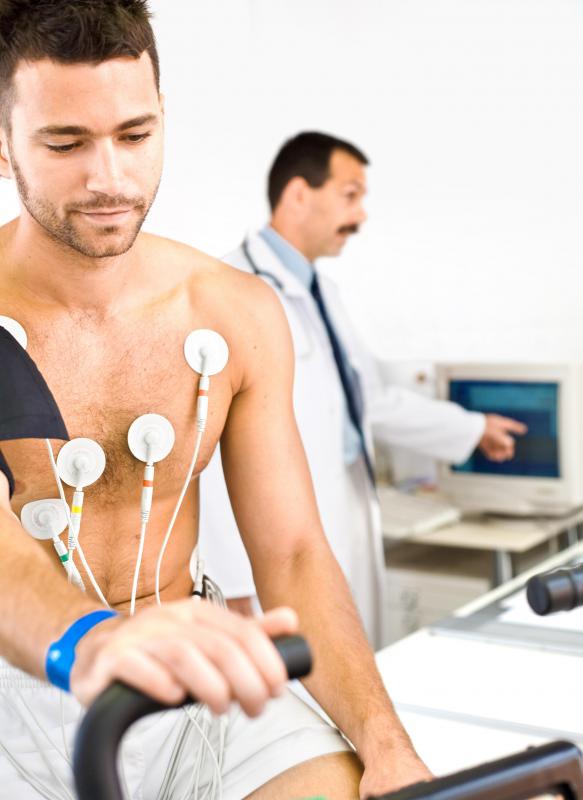At WiseGEEK, we're committed to delivering accurate, trustworthy information. Our expert-authored content is rigorously fact-checked and sourced from credible authorities. Discover how we uphold the highest standards in providing you with reliable knowledge.
What can I Expect During an EKG Test?
During an EKG test, otherwise known as an electrocardiogram, you will have approximately 12 electrodes attached to your body. These might be placed on different areas of your skin, including your chest, hands, and arms. You will likely be asked to lie down on a table while the electrodes follow the electrical signals inside your heart. A machine in the room will record the signals on paper so your doctor can look them over for any abnormalities. An EKG test is generally very short and completely painless.
There are certain circumstances where different types of EKG tests may have to be performed. A traditional EKG test might not be able to pick up certain types of heart problems, such as irregular heartbeat, because these problems aren't always present. If you have an irregular heartbeat, it might occur only a few times during the day, and if this is the case, there is a good chance that the EKG didn't pick it up if the irregularity wasn't present at the time of your test. A type of EKG commonly known as a stress test may be necessary if you have heart problems that occur only occasionally. During a stress test, you may be asked to walk or run on a treadmill while you have the electrodes on your skin so that your heart will beat faster and any irregularities will likely be recorded.

In addition to the traditional EKG and the stress test EKG, doctors also occasionally perform another type of EKG called nuclear heart scanning. This type of EKG is normally done when a stress test cannot be performed due to the medical condition of the patient. If you are about to undergo nuclear heart scanning, a doctor will inject you with medicine to make your heart beat faster along with a radioactive tracer so the results can be monitored.

Regardless of the type of EKG test done, you may end up having to undergo other tests depending on the results of your EKG. IF the results of your EKG were abnormal, your doctor may decide to follow the test up with an MRI (magnetic resonance imaging). An MRI will show pictures of your heart in detail so your doctor can see exactly what part of your heart is weak or damaged. A PET test (positron emission tomography) might also be necessary so your doctor can see the chemical activity going on in various areas of your heart.
AS FEATURED ON:
AS FEATURED ON:













Discuss this Article
Post your comments